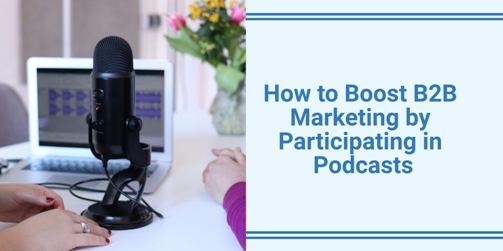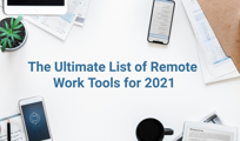Podcasts are becoming an increasingly important part of people’s lives. In today’s busy world, hitting play on a podcast while driving, commuting, or doing other activities is a great way to learn while on-the-go.
This increase in the number of listeners also means that there’s a huge pool of potential B2B leads listening in on each and every podcast. As a result, podcasts can be an amazing opportunity for increasing your visibility, becoming an industry expert, and generating more sales in the B2B sales funnel.
Podcasts offer a more personal way for potential buyers to get to know you, too. Listening to someone speak knowledgeably about a topic instantly creates a connection and builds trust, which is key in B2B sales.
The best part is, you can reach a wider audience who might not have heard about your business otherwise.
If you’re ready to start participating in podcasts, here are the main steps on how to do it.
Step #1: Find Relevant Podcasts
Showing up on any old podcast isn’t effective. Instead, you need to find podcasts that are popular with your target audience. These are the people who are going to buy from you and it pays to be strategic about where you spend your time and effort.
Start researching podcasts in your industry on podcast players like Player.fm, iTunes, or Spotify. Type in keywords relating to your industry and browse through the results for anything that seems like it would be a good fit.

Most podcasts have their own website, too, so you can read further about a podcast to see if it covers topics that complement your business.
As well as searching through popular podcast platforms, you can also run a simple Google search for the “top podcasts in [your industry]”. There are tons of lists out there dedicated to pretty much every industry going. This way, you can find podcasts that don’t necessarily have industry keywords in their title.

Step #2: Reach Out to Podcast Hosts
Once you’ve found a collection of podcasts that are a good fit, it’s time to reach out to the host to express your interest in being a guest.
Most podcasts happily welcome guest speakers as getting insights from other industry professionals is a key part of their strategy. Check out podcast websites to see if there are any submission guidelines or connect with the host on LinkedIn, Twitter, or via email to spark an initial connection.
Step #3: Have Your Pitch Ready
There’s a high chance you’ll need to pitch yourself as a guest speaker.
This means choosing a topic that’s relevant to the podcast’s audience and your business. To do this, you need to have an understanding about past topics the podcast has discussed. Browse through their previous episodes, take a look at past speakers, and identify any key topic themes that emerge.

Then weave your business into your pitch. The best way to market your product or service on a podcast is by presenting a problem that the target audience faces and then positioning your business as a solution.
For example, if your product is a time management app, you might focus your speaker segment on time management techniques and then mention your product at the end as a potential solution.
Ideally, you’d have this figured out before you pitch yourself as a speaker to a podcast host so they know exactly what you have in mind and can determine right away if it’ll be a good fit for their audience.
Step #4: Follow-Up
Landing a spot on a podcast is the first hurdle, the next step is to leverage your speaker slot to market your business. It’s usually not enough to just mention your product during your talk and hope for the best.
Instead, you want to make it as easy as possible for listeners to find out more about your business and invest in it.
Some key ways you can do this include:
- Providing a special offer for podcast listeners, like a free trial or an exclusive discount
- Creating a dedicated landing page to send listeners to where they can find out more about your product or service
- Capturing listener emails with a valuable freebie
- Following up with listeners via the podcast host’s network
The more podcasts you appear on the better.
This is because audiences will start to recognize you and your business and you’ll start to create a presence for yourself as an industry expert. On top of this, you’re more likely to get accepted onto other podcasts if you’ve already got a few under your belt.
To leverage podcasts successfully, you have to be strategic. Think about what you want to say to listeners and how you can weave your business into your message. And don’t forget the follow-up, whether it’s a simple reminder about your business or an exclusive offer for listeners.





